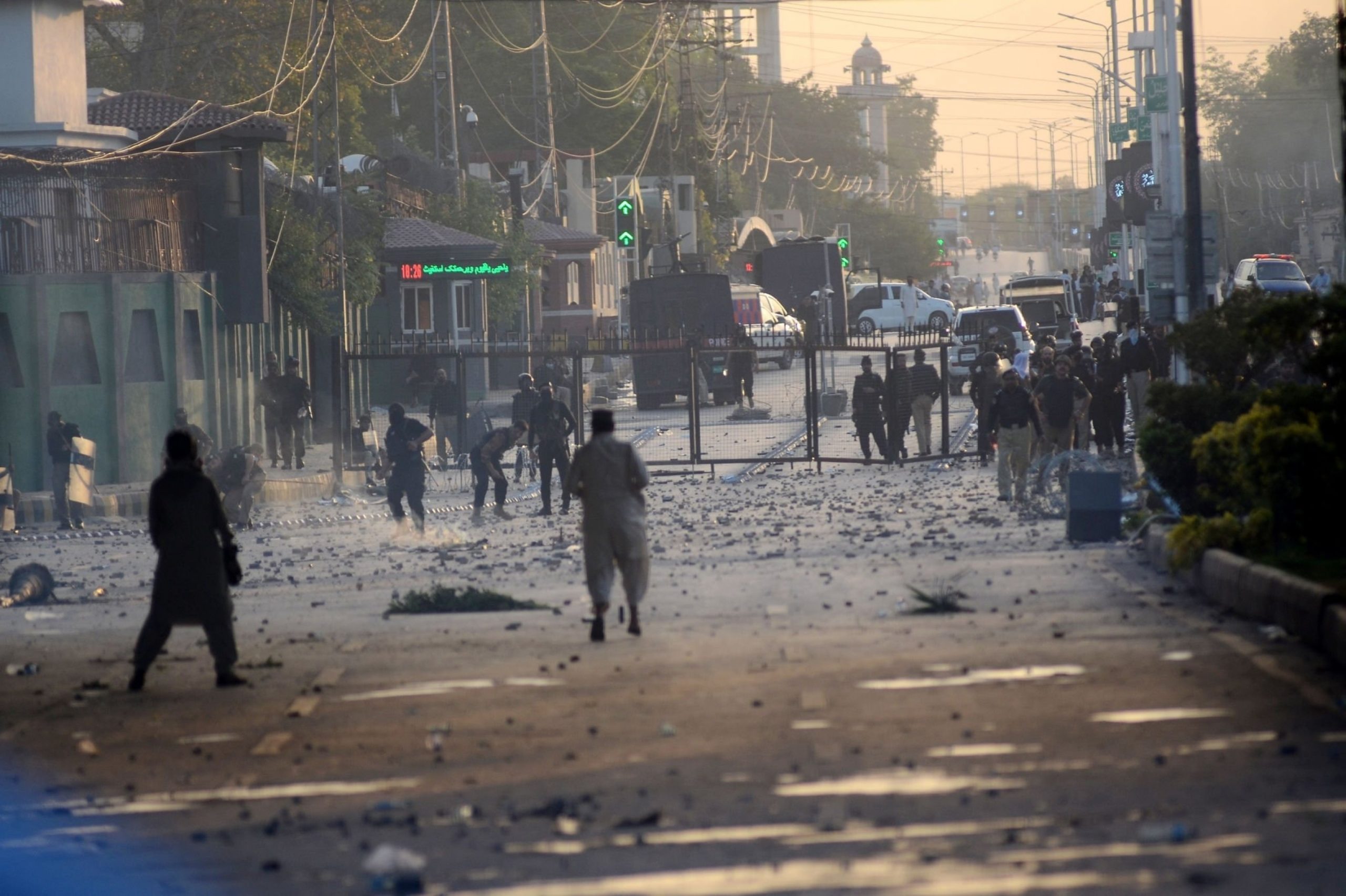The chairman of the Pakistan Tehreek-e-Insaf (PTI), Imran Khan, was arrested in Islamabad in a land transfer case involving property tycoon Malik Riaz. He was accused of corruption and corrupt practices and was handed over to the National Accountability Bureau (NAB). The Pakistan Rangers, which operate under the Interior Ministry and are usually commanded by officers on secondment from the army, broke open the glass window and arrested him while he was undergoing a biometric process at the court, beating lawyers and Khan’s security staff. Massive protests broke out in several cities across Pakistan, and for the first time, Khan’s supporters smashed the main gate of the army’s sprawling headquarters in Rawalpindi, chanting slogans against the establishment. The caretaker Punjab government called the Rangers to control the law-and-order situation in the province and imposed Section 144. Khan’s arrest came a day after the Pakistan Army slammed him for “highly irresponsible and baseless” allegations against a serving ISI officer without evidence. Khan has been facing a slew of cases since his ouster through a no-trust vote in April last year, which he has rejected as political victimisation by the ruling alliance.
Pakistan has had a tumultuous history when it comes to democracy. Pakistan’s first constitution was adopted in 1956, which established the country as the Islamic Republic. However, in 1958, the country saw its first military coup when General Ayub Khan seized power. Pakistan has had a chequered history when it comes to democracy, with frequent military interventions. General Ayub Khan’s regime was followed by General Yahya Khan’s military dictatorship in 1969, which lasted until 1971. During this period, Pakistan faced a major crisis when East Pakistan (now Bangladesh) seceded, leading to a civil war and the eventual dismemberment of the country. It has been the army all the way, military coups, and time and again generals becoming President and clinging to power by hook or crook in the name of saving democracy in Pakistan.
All this chaos has led to weak governance, a lack of political continuity, and an absence of political will to tackle the country’s issues. These economic problems have led to poverty, unemployment, and social unrest. Corruption is widespread in Pakistan and has harmed the country’s economy and governance. It has eroded public trust in institutions, hindered economic growth and development, and led to social unrest. The government has struggled to address these issues effectively, leading to social unrest and political instability. Pakistan has been the biggest exporter of terrorism worldwide. Despite clear evidence of Pakistan’s involvement in sponsoring terrorism abroad, the international community has been turning a blind eye.
Amid a worsening economic crisis, Pakistan is currently facing significant challenges, including high external debt, a devalued currency, and skyrocketing inflation. In an attempt to address these issues, Pakistan has been engaging in negotiations with the International Monetary Fund (IMF) for a critical financial bailout. Despite efforts, Pakistan is still struggling to secure the much-needed USD 1.1 billion bailout package, which is essential to avoid a potential bankruptcy situation.
After the former Prime Minister of Pakistan was arrested, protests broke out in multiple cities across the country, including Quetta, Karachi, Peshawar, Rawalpindi, and Lahore. At present, supporters of Imran Khan are engaged in violent protests, attacking important government buildings such as the Radio Pakistan building, Air Force Station, and other vital installations. Furthermore, the Army Headquarters’ gate and General’s house have been ransacked by supporters of the PTI party. This is an extremely dire situation for Pakistan, especially given its economic instability, low foreign exchange reserves, and overall law and order issues. Additionally, Baluchistan and POJK have been experiencing turmoil for an extended period. With the Army being called upon to maintain order, it appears that no one is effectively managing the situation. If the conflicts within society and institutions become too intense, it could lead to further anarchy, and the powerful Army might resort to extra-constitutional measures. The whole world is watching Pakistan’s turmoil.


